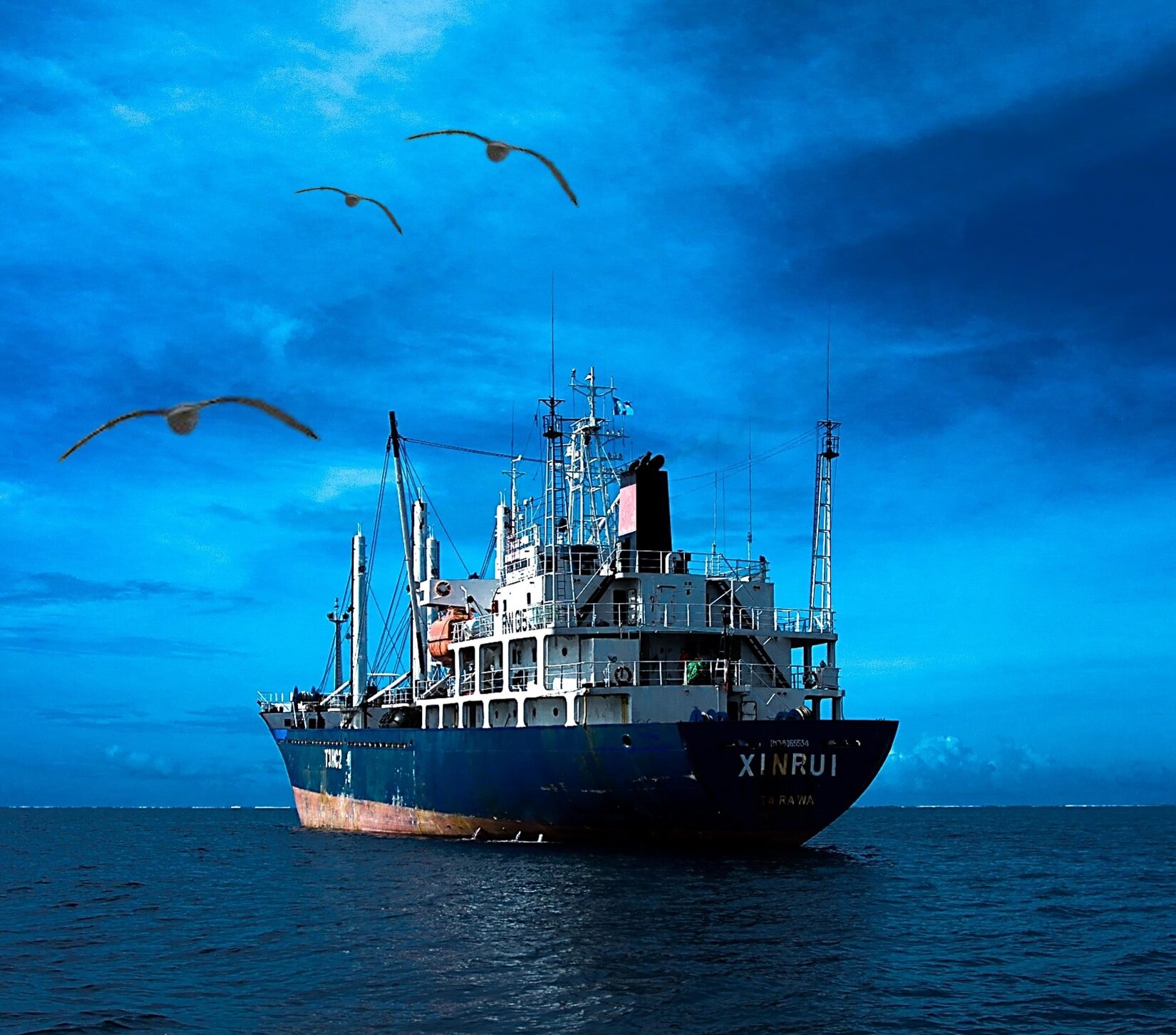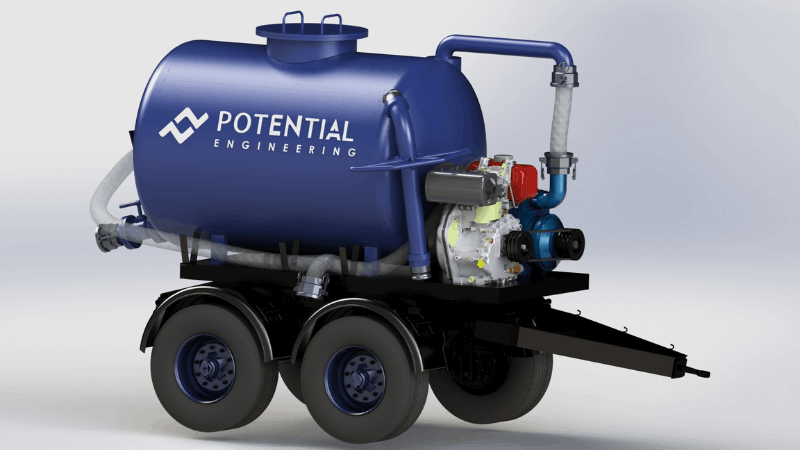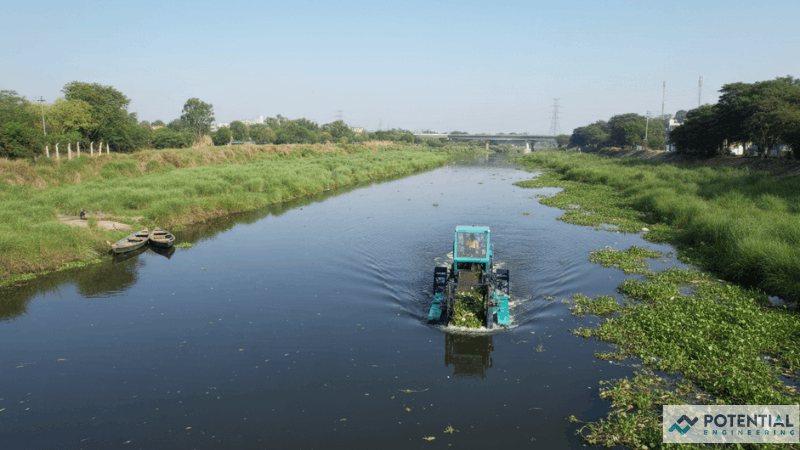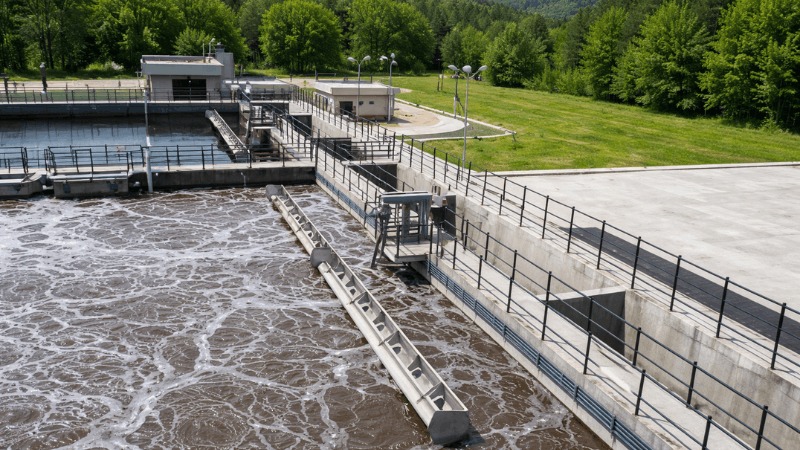Oil Water Separators Safeguarding Our Marine Environment

The marine environment is the largest ecosystem on our planet. 71 percent of the earth’s surface is covered with water, of which 97 percent are oceans and seas. The three most important reasons why marine environment protection from oil pollution are:
1. Climate: The ocean regulates our climate and provides air we breathe. Our ocean mitigates non-renewable industry pollution by absorbing 25 percent of all carbon emissions while generating 50 percent of the oxygen we need to survive.
2. Ecosystem: The oil layer on the surface of the water obstructs sunlight that affects the plants underwater. If not treated, the obstruction of sunlight can cause plant death.
Oil spills affect the coastlines. The birds and sea mammals get covered by the oil when they come in contact with oil-contaminated water. Marine animals find it difficult to absorb oxygen through water in oil spill-affected areas. The oil present in water enters their gills, which suffocates them to death. In cases of birds, oil enters their fur, breaking down the insulating capabilities of feathers, which makes them heavy, difficult to fly and in some cases, is a cause of hypothermia.
The sand, animals, grass, and soil are also prone to the damaging effects of an oil spill. Oil-contaminated seafood consumption also affects the health of humans. Thus, we can conclude that a marine oil spill/pollution has a long-lasting adverse effect on our ecosystem.
- 3. Economic Development: The livelihoods of many are dependent on coastal resources. For example, tourism is directly affected by marine oil pollution, water related activities are suspended until spilled oil gets cleaned. Oil spills can cause some serious damage to fisheries and mariculture resources. Physical contamination can affect stocks and disrupt business activities by fouling gear or impeding access to fishing sites. Heavy industries that rely on seawater as an intake are at risk around the oil spill area, which may affect normal operations.
Health of the ocean is affected by intentional or accidental discharge of oil. To control and mitigate the adverse effects of marine oil pollution, the International Convention for the Prevention of Pollution from Ships (MARPOL) has set a limit of the oil content in the bilgewater that a vessel can legitimately discharge into the sea. It is now a requirement for all ships to have an oil discharge monitoring and control system along with oil filtering equipment known as the Oil Water Separator (OWS).
What is Bilgewater?
Bilgewater is a mixture of fresh water, sea water, oil, sludge, chemicals, and other fluids. All the substances get accumulated in the bilge wells. Oil finds its way to the bilge well mainly from the fuel oil purifiers, leakage in fuel line and oil spills.
When should Oil Water Separators be Deployed in Marine Settings?
Under MARPOL, all ships over 400 gross tons (GT) must have equipment installed/OWS onboard that limits the discharge of oil into the oceans to 15 ppm when a ship is enroute. All vessels over 400 GT must have an oil content monitor (OCM), including a bilge alarm, integrated into the piping system to detect whether the treated bilgewater discharged from the bilge separator meets the discharge requirements.
Types of OWS
The two types of OWS are gravity-based separators and coalescer separators.
1. Gravity-based separator: As the name suggests, this industrial oil-water separator relies on the gravity difference between water and the specific gravities of oils. The different types of gravity-based separators are API Separator, Corrugated Plate Interceptor, Tilted Plate Interceptor, and Hydrocyclone Separator
2. Coalescer separator: In a coalescing separator, the flow of oil and water through the separator is similar to a gravity separator. However, an oleophilic media is incorporated in a coalescing separator. The oleophilic media enables the oil droplets to bind together on the surface of the media. Through coalescing/binding together, the oil droplets increase in size and become more buoyant, thus rising to the surface swiftly, further enhancing separation.
Who Benefits from Oil Water Separators in Marine Environments?
An oil water separator benefits all the stakeholders. It protects the marine environment from oil pollution, which may have long adverse effects on the marine ecosystem.
Also, MARPOL rules are very stringent, and each one must follow strictly to prevent pollution at sea. Any violation of MARPOL can lead to imprisonment and a huge fine. An efficient OWS ensures that discharged bilgewater contains oil that is of permissible limits, thereby saving the owners from regulatory penalties.
A clean marine environment benefits the marine ecosystem, climate, and all the living beings at large. Thus, an oil water separator plays an important role in protecting our planet.
Frequently Asked Questions
Q.1 What are the benefits of using an oil water separator?
A. Oil water separators offer environmental compliance, protect equipment, and promote cost savings by efficiently removing oil and contaminants from wastewater, ensuring clean water discharge and regulatory adherence.
Q.2 How does oil spill equipment help in cleaning up oil spills?
A. Oil spill equipment, such as booms and skimmers, contain and remove spilled oil, preventing its spread and minimizing environmental damage. Dispersants and sorbents may also be used for effective cleanup.
Q.3 What services do oil skimmer suppliers typically offer, such as installation, maintenance, or training?
A. Oil skimmer suppliers typically offer a range of services, including installation, maintenance, and training. These services ensure effective and efficient use of oil skimmers in various industrial settings, enhancing their performance and longevity.





